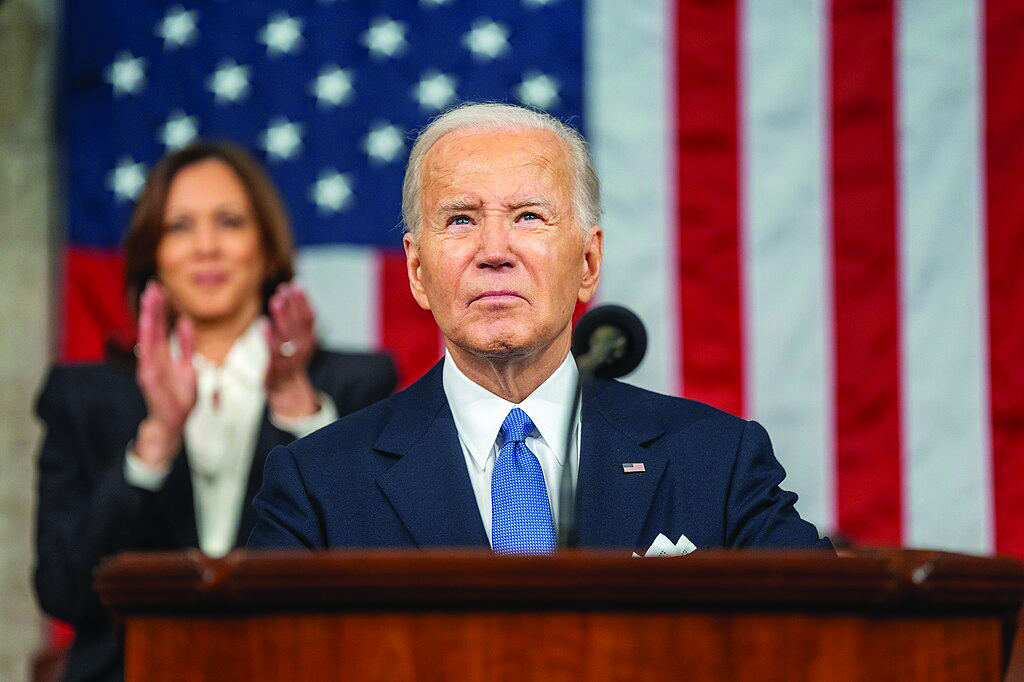
President Joe Biden’s State of the Union (SOTU) address was particularly exciting for Americans involved in the cannabis industry. While discussing his goals on things like mental health issues, gun reform, community violence and crime, the president brought up cannabis legalization.
Biden said his cabinet is building trust with communities, “taking executive action on police reform” and contemplating a review of “federal classification of marijuana and expunging thousands of convictions for the mere possession, because no one should be jailed for simply using or have it on their record.”
Despite some factual errors in the president’s statement (more on that later), his inclusion of cannabis was a big deal. Biden was reminding voters that he had not only pardoned several thousand low-level cannabis crimes at the federal level but that he also initiated a review by the Department of Health and Human Services (HHS) of cannabis’ status as a Schedule I substance — and he was doing so in arguably the most high-profile address since his inauguration.
The president’s social media team followed the State of the Union with a series of posts to Xhighlighting the issues Biden had mentioned. By far the most engaged with and liked among them was the one reiterating his point on cannabis: “No one should be jailed just for using or possessing marijuana.”
That’s a dramatic pivot from the politician who helped author the 1994 Crime Bill that enhanced drug-related incarceration and targeted impoverished and minority communities with harsh sentences for drugs like crack and marijuana, and who just in 2010 said “[marijuana] legalization is a mistake” and “I still believe it’s a gateway drug.”
Biden has taken some steps in the last four years toward cannabis reform. Most notably, in 2022 he issued two rounds of mass pardons for low-level cannabis crimes. That same year, he ordered Attorney General Xavier Becerra to initiate the process of reviewing how cannabis is scheduled as a narcotic (“Tastes Like Crow” Oct. 13, 2022).
When Biden claimed to have expunged “thousands of convictions,” he spoke in error. As the Congressional Research Committee clarified in a November 2022 report, “the pardon may not remove all legal consequences of marijuana possession, because it does not expunge convictions.”
Still, the string of events that Biden kicked off by ordering those pardons and the review of cannabis could be monumental. In August 2023, a leaked email from Anne Milgram, the current head of the Drug Enforcement Administration (DEA) to a high-ranking official from HHS indicated that HHS was preparing to officially recommend that the DEA reclassify cannabis.
HHS confirmed that in January 2024. Following Biden’s ordered review, U.S. Food and Drug Administration (FDA) scientists conducted an eight-factor analysis on cannabis, concluding that it has acceptable medical uses and a moderate to low risk of addiction compared to other Schedule I drugs. In January, HHS released the study as well as unredacted documents explaining why it was officially recommending that cannabis be rescheduled.
The DEA is still reviewing the recommendation. However, it previously stated that as to scientific and medical matters, any recommendation from the HHS would be “binding.”
Should cannabis be rescheduled under Biden, it would be an official acknowledgment from the federal government that cannabis is largely safe to use and possesses a low potential for abuse. It could also make the path to passing legislation addressing some of the cannabis industry’s biggest challenges (banking, taxes, regulation, etc.) easier.
Following the State of the Union, politicians and advocacy groups responded to the high profile mention of cannabis. Nikki Fried, chair of the Florida Democratic Party, posted to X, “I think that was a first…cannabis in SOTU!!!!”
Rep. Jerrold Nadler (D-NY) backed Biden up in his post to X, commenting that “POTUS is right. With marijuana legalized in various states across the nation, no one should be in prison for cannabis-related offenses in 2024.”
But as Andrew Freedman, the executive director of the Coalition for Cannabis Policy, Education and Regulation, noted in a press release, the fight is far from over.
“It is far past time for Washington’s policymakers to acknowledge states have taken the lead on cannabis policy in the absence of federal action,” Freedman said. “We applaud President Biden’s recent actions, including his pardon proclamation and support for rescheduling cannabis. However, there is still work to be done.”
